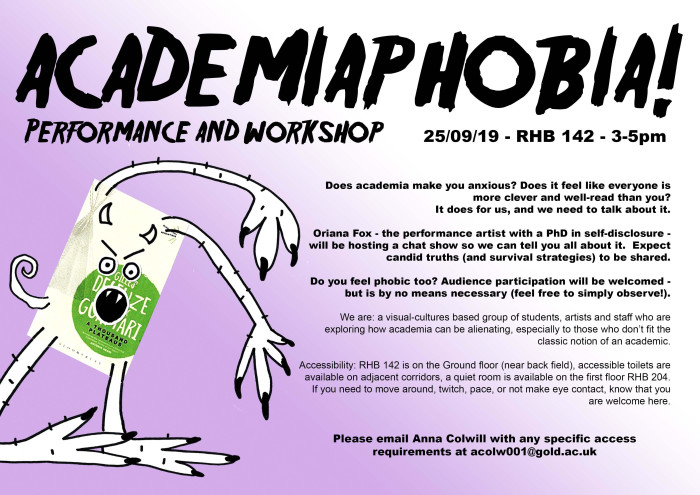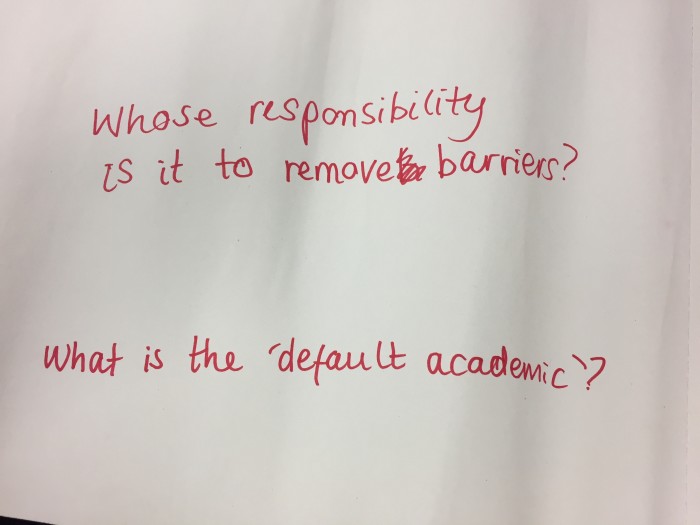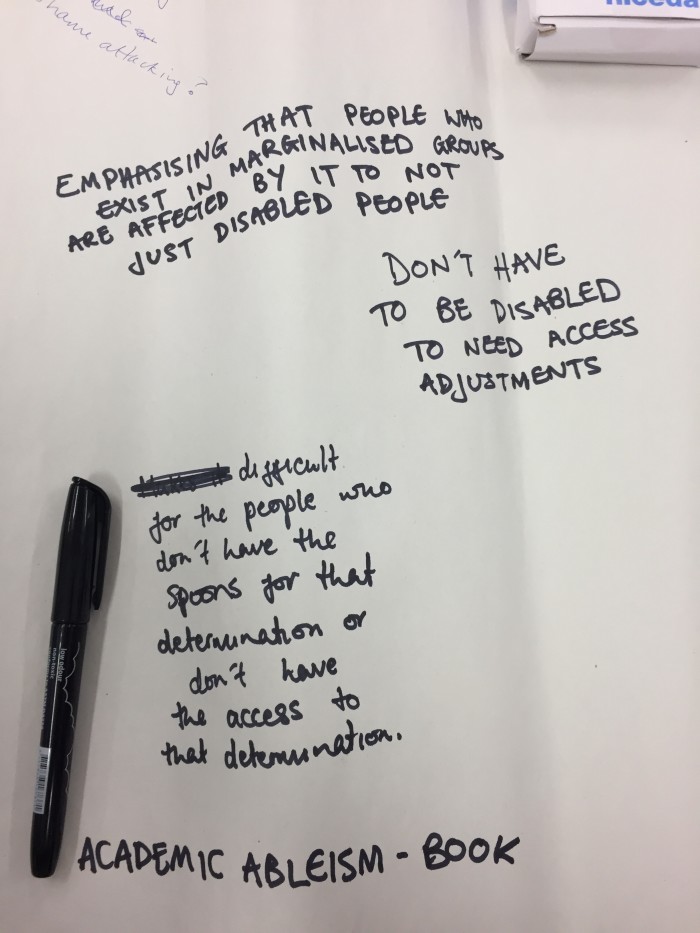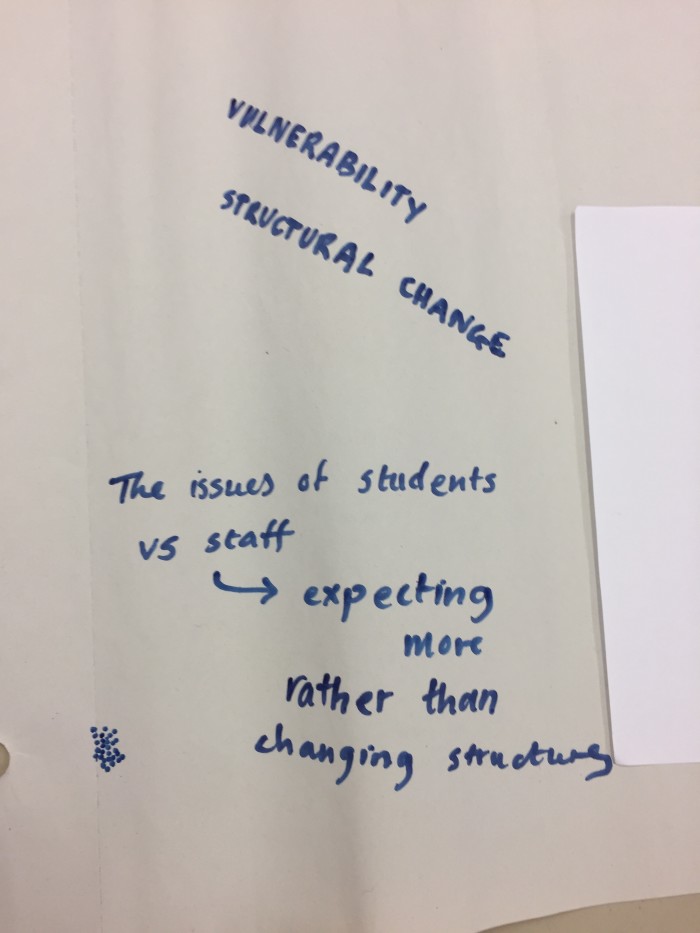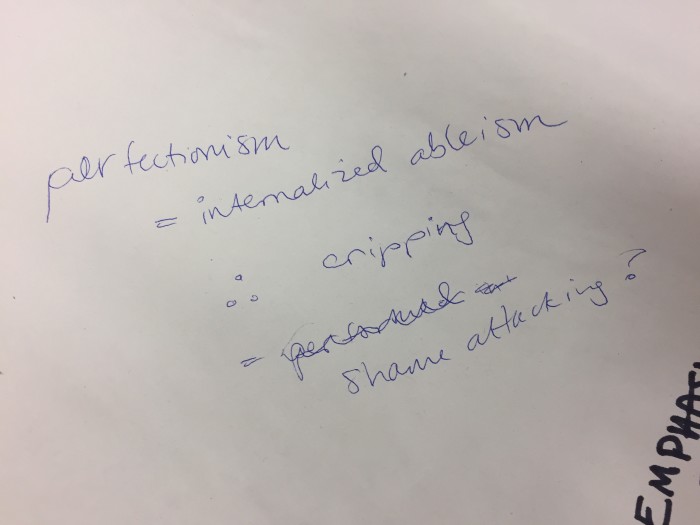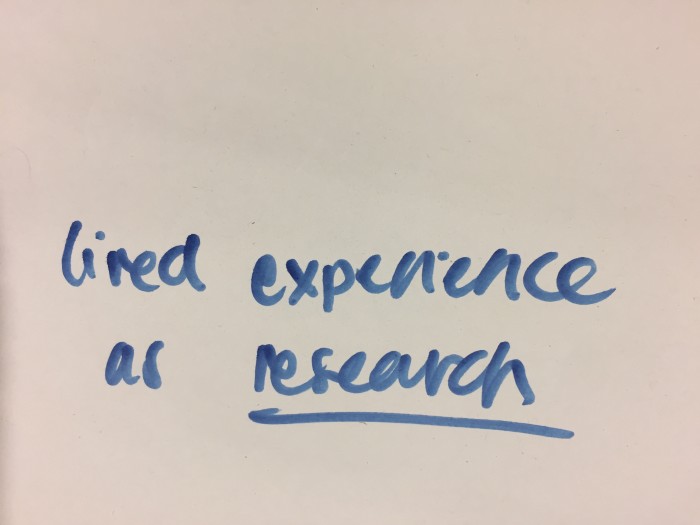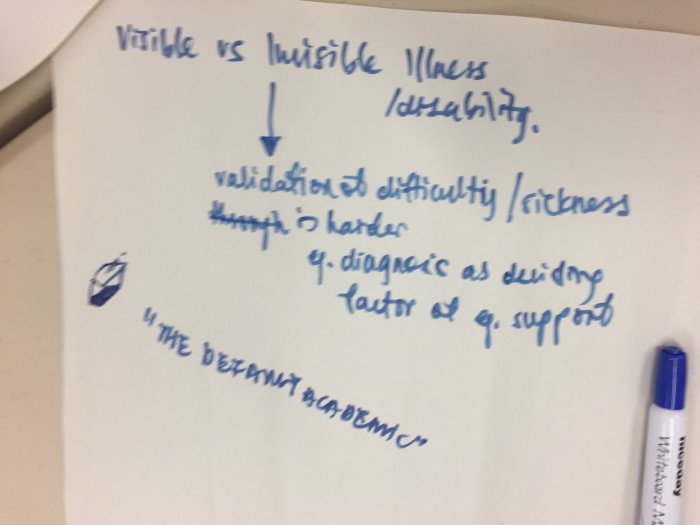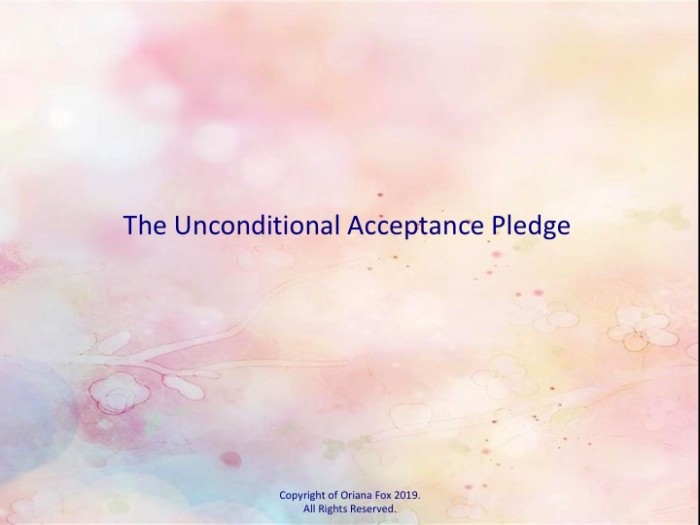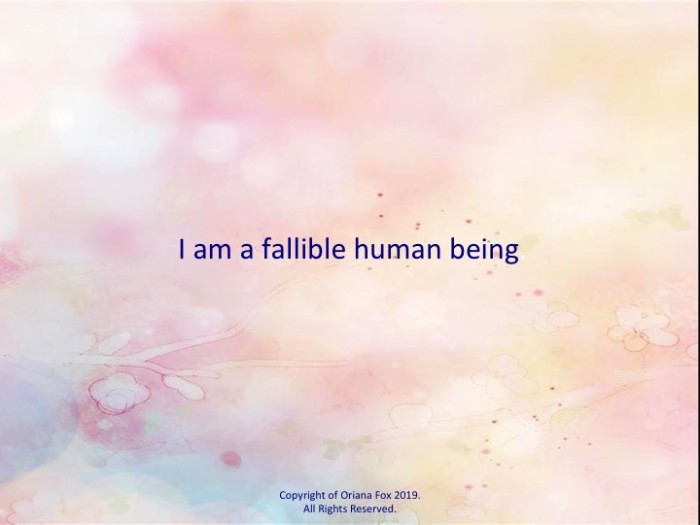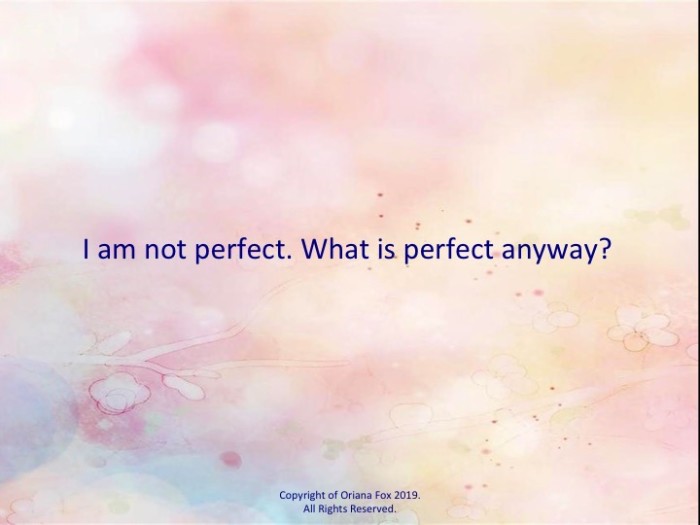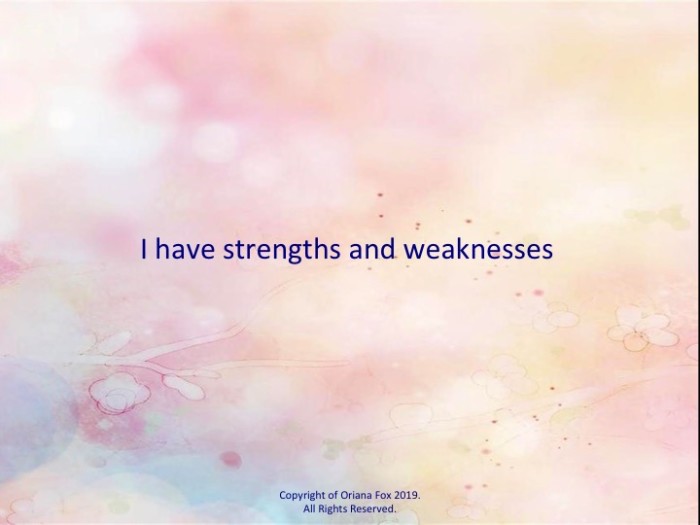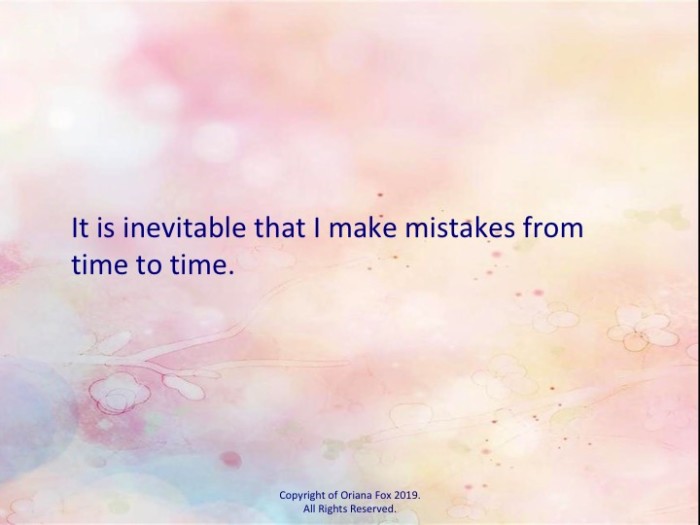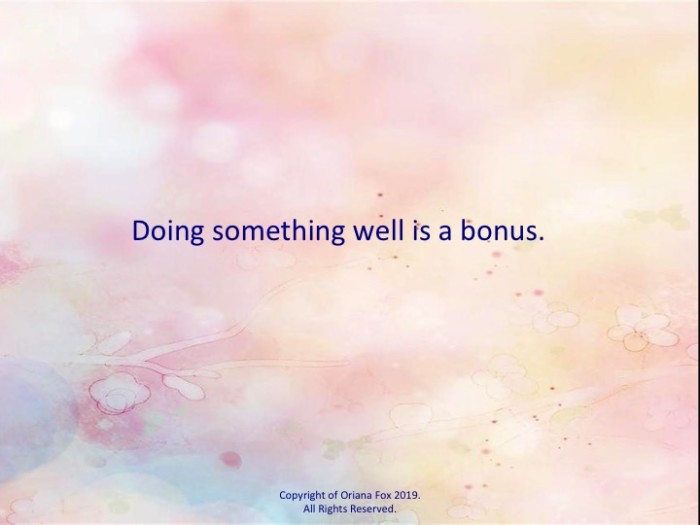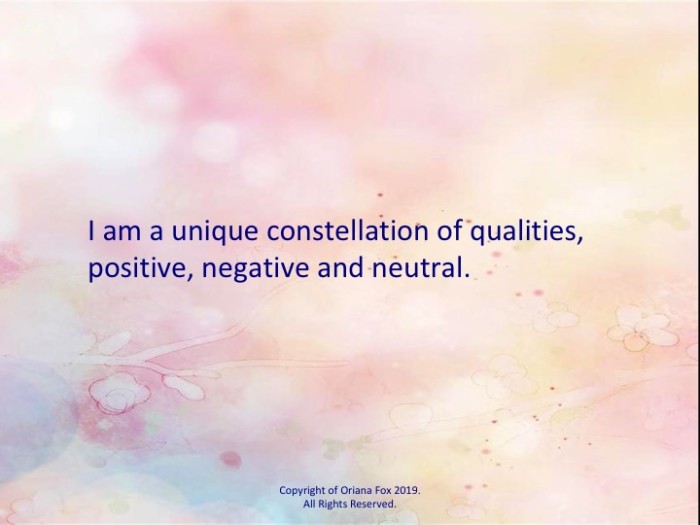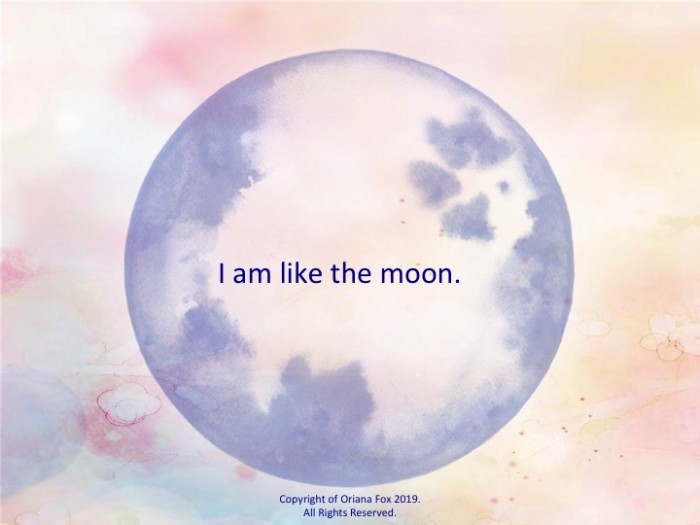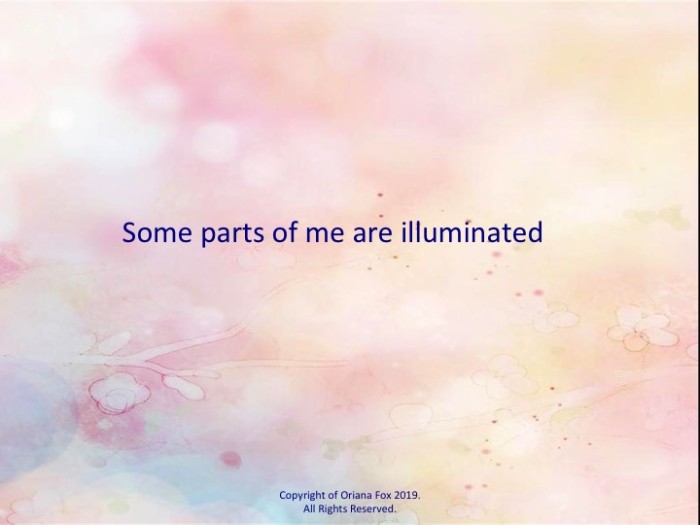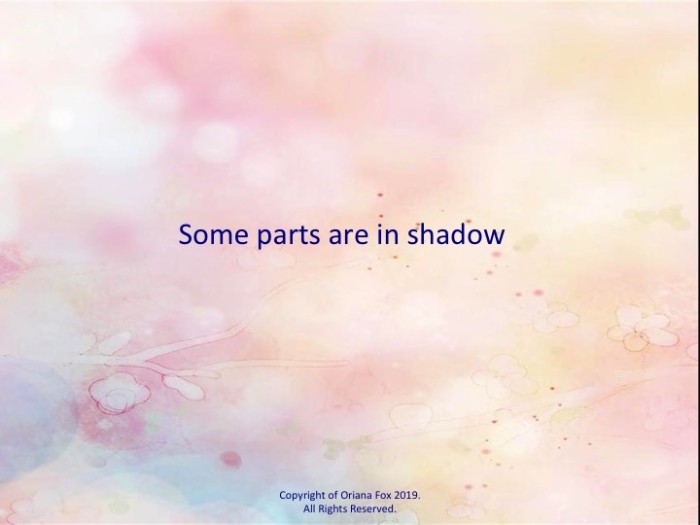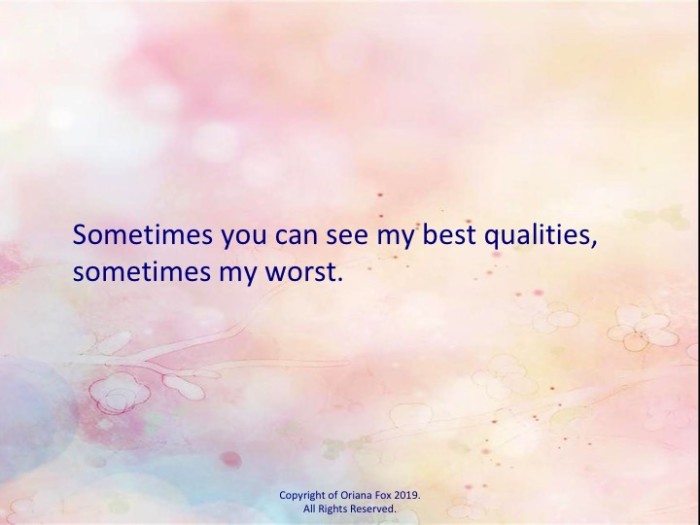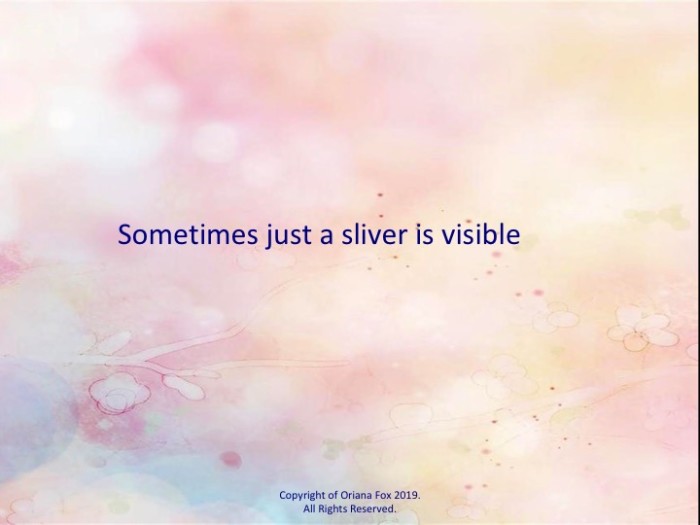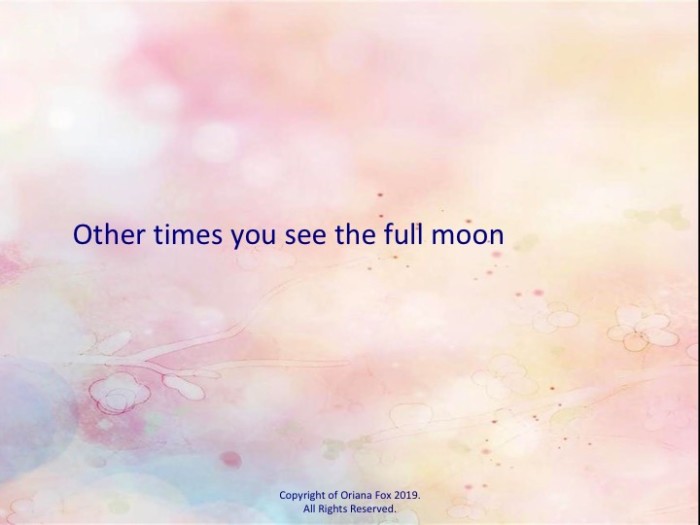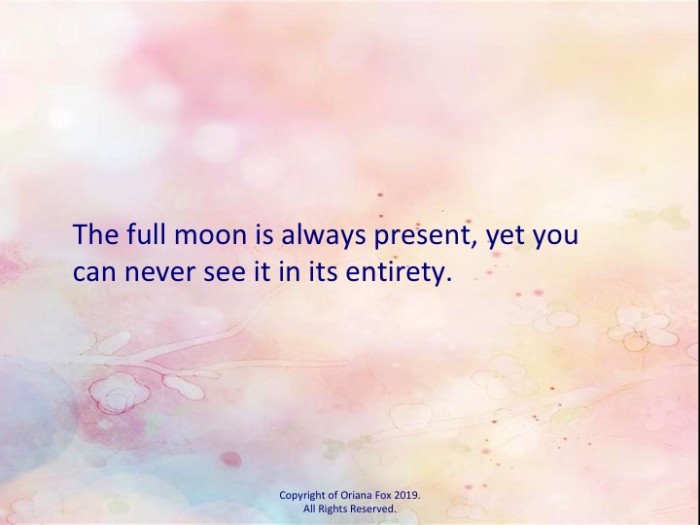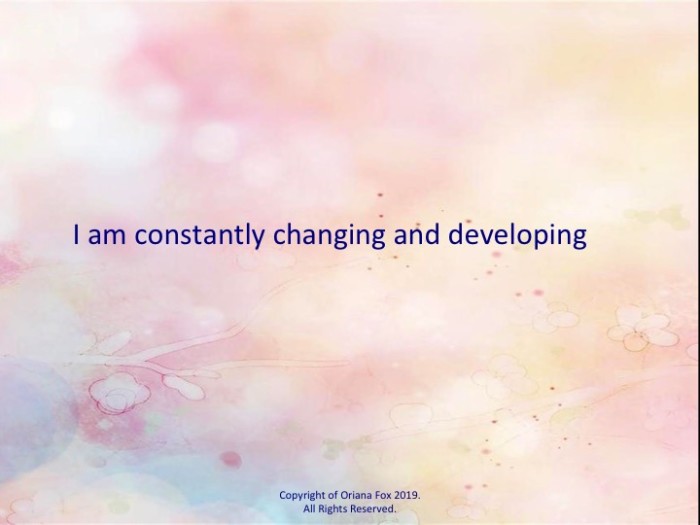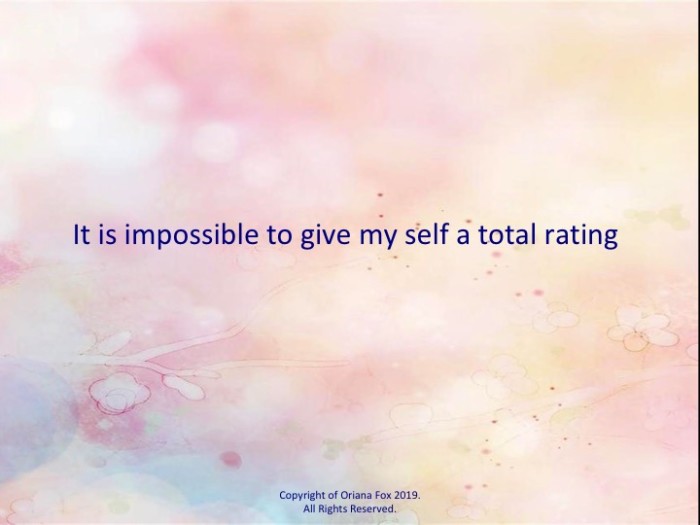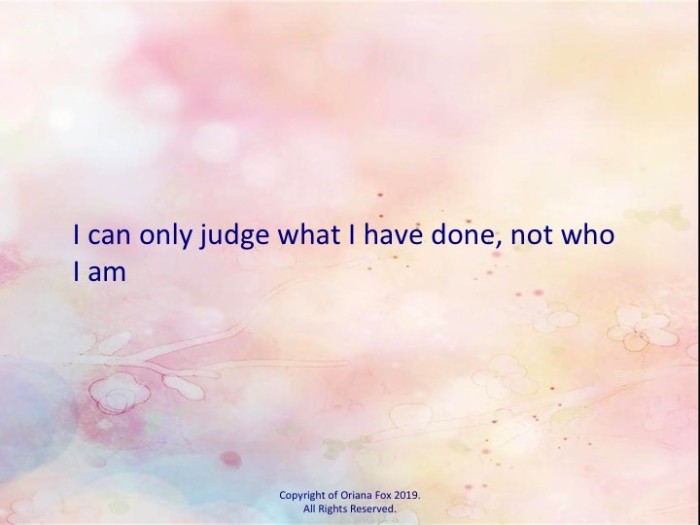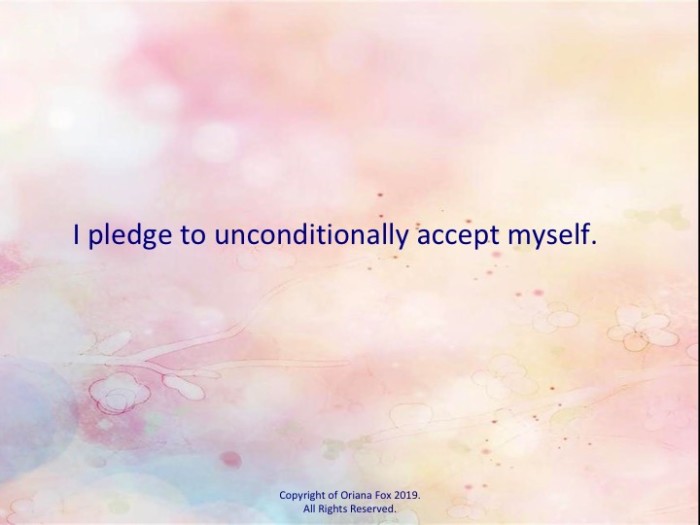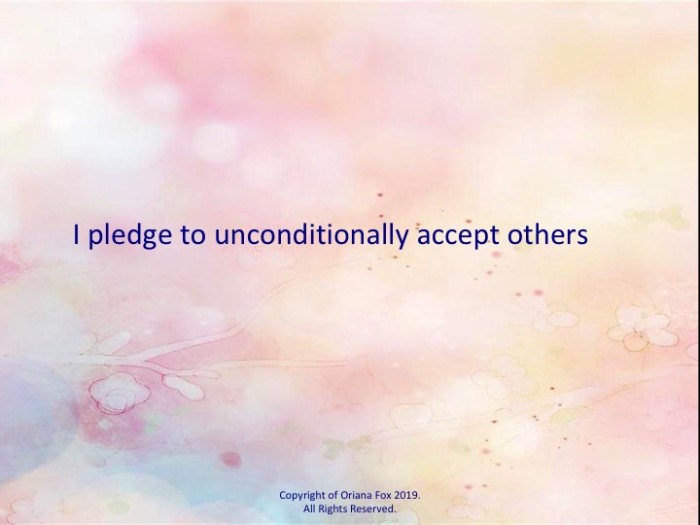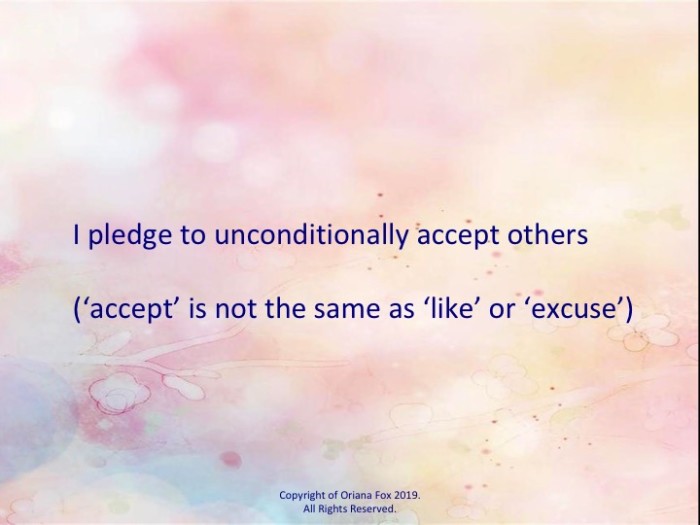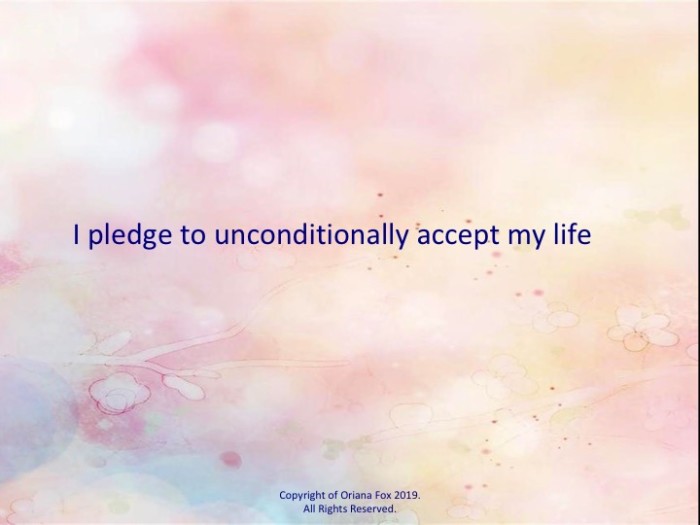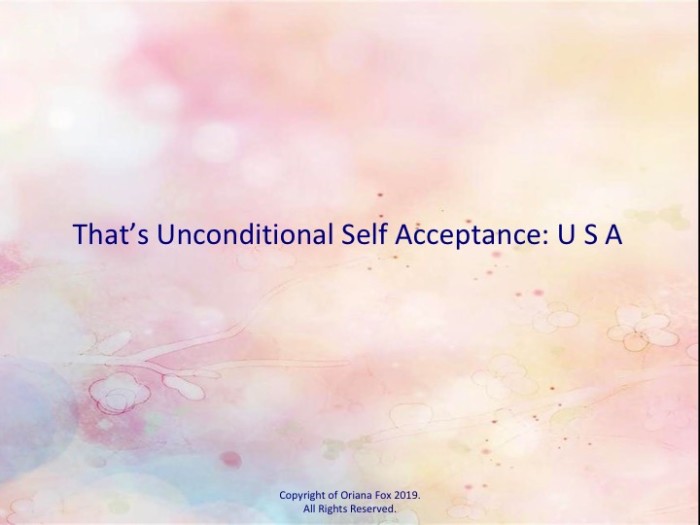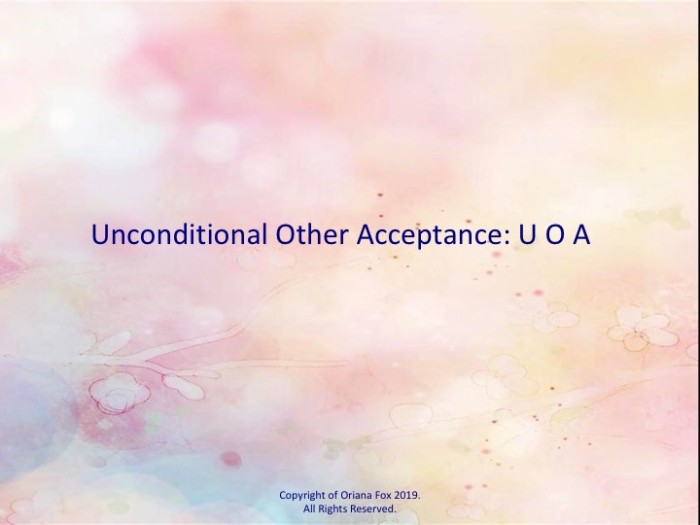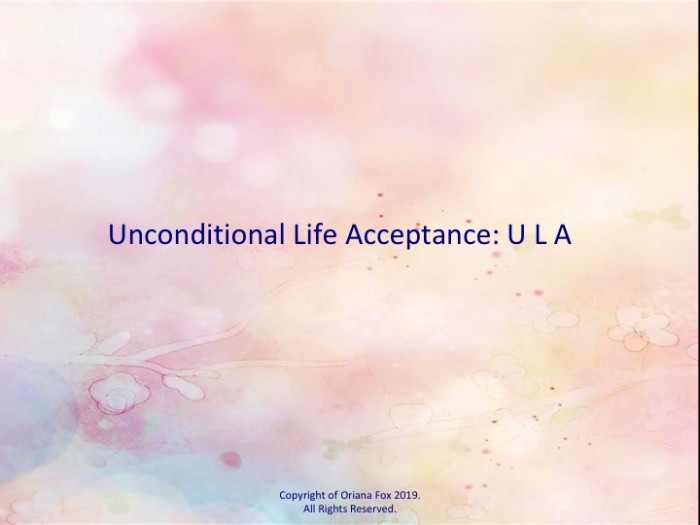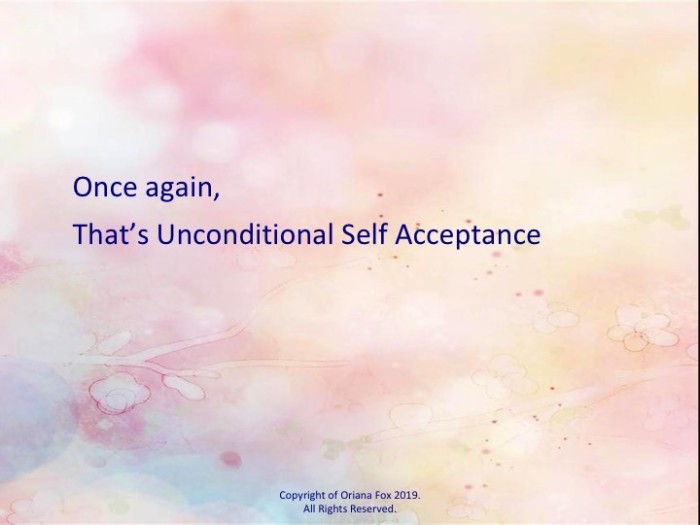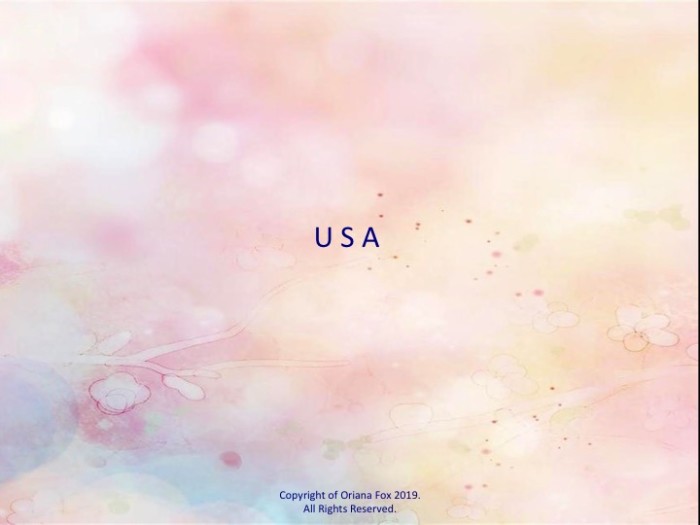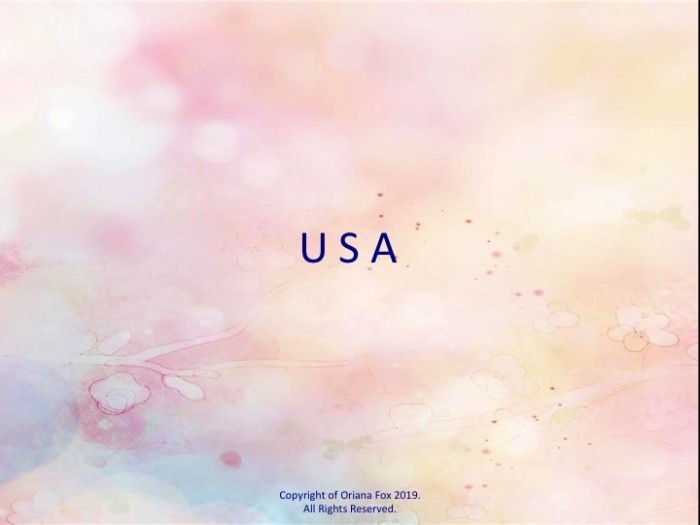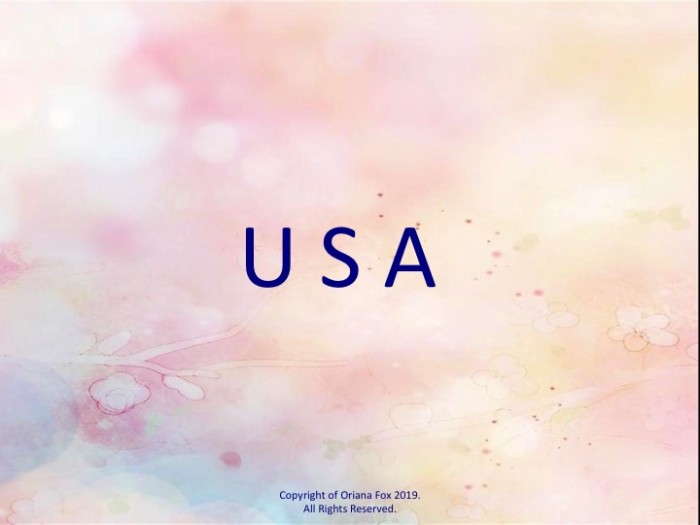Does academia make you anxious? Does it feel like everyone is more clever and well-read than you? It does for us, and we need to talk about it.
I was invited by the Ableism discussion group at Goldsmiths, University of London, to transform my talk show The O Show into a participatory, student-centred workshop to address academia-induced anxiety or ‘academiaphobia’. The first half of the workshop ran like a typical episode, while the second part entailed opening up the discussion to the audience by employing Lois Weaver’s long-table format. The longtable format allows anyone to join in as and when they choose to in a shared discussion without imposed moderation; participants can also write comments or draw on a paper table cloth. I augmented the format slightly by providing a variety of wigs, allowing people the possibility to participate as a persona.
The chat show/long-table workshop format was a liberating development for The O Show on many levels. Firstly, it allowed greater opportunities for discussion than a typical chat show in that conversations begun in the interviews could take on a new life for the wider group of participants. Secondly, collaboration was foundational to the creation of the show. Students from the Ableism discussion group and their mentor, the lecturer Alice Andrews, helped to select the guests and even co-edited my opening monologue and co-wrote the interview questions. In this way they helped to ensure the framing of the talk show served the wider aims of the workshop to create an open forum in which students could share their concerns and find ways to support one another.
The show began as all O Shows do, with my priming the audience/participants to applaud, laugh and boo on cue. I then delivered my opening monologue explaining my relationship with the show’s topic, that is, my own struggles with Academiaphobia, which manifests as shyness (not speaking at all in class when I was a student) and imposter syndrome. My speech also elaborated on the ways that academia is influenced by the values and norms of the wider society of which it is a part, which unfortunately means that the competitiveness, individualism and systemic prejudices of neoliberal capitalism and the status quo impinge on student experience and contribute to increasing levels of anxiety, isolation and generalised bad feelings. The speech concludes with a call not only for individual, but also and more importantly for collective transformation and care. I then asked the audience to join me in reciting the unconditional acceptance pledge before introducing my three guests:
- 1) Dr Windy Dryden, O Show staff psychologist and the UK’s leading expert in RECBT (Rational Emotive Cognitive Behaviour Therapy)
- 2) Anna Colwill, a professional disabled nuisance, artist, organiser and activist, currently in the final year of her joint Art and Art Histories BA.
- 3) Misha Ferrant, an artist and art graduate whose performances underwhelm and sit in the awkward spaces of disabled queerness.
Dr Dryden illuminated the nature of the beast: anxiety, its causes and expression as well as its relationship to depression. He also highlighted the fact that the feeling can become compounded in that you can get anxious about being anxious! Anna discussed her struggles against the ableism of the university, and having won her fight which has allowed her to continue her studies with a personalised timetable. Misha shared what helped them cope with the pressures of academic life, namely support from a group of like-minded peers and taking the pressure off by deciding not to exhibit during their studies. Words written on the paper table coverings by participants during the group discussion are documented below:
Below are the slides that accompanied the Unconditional Self-Acceptance Pledge:
